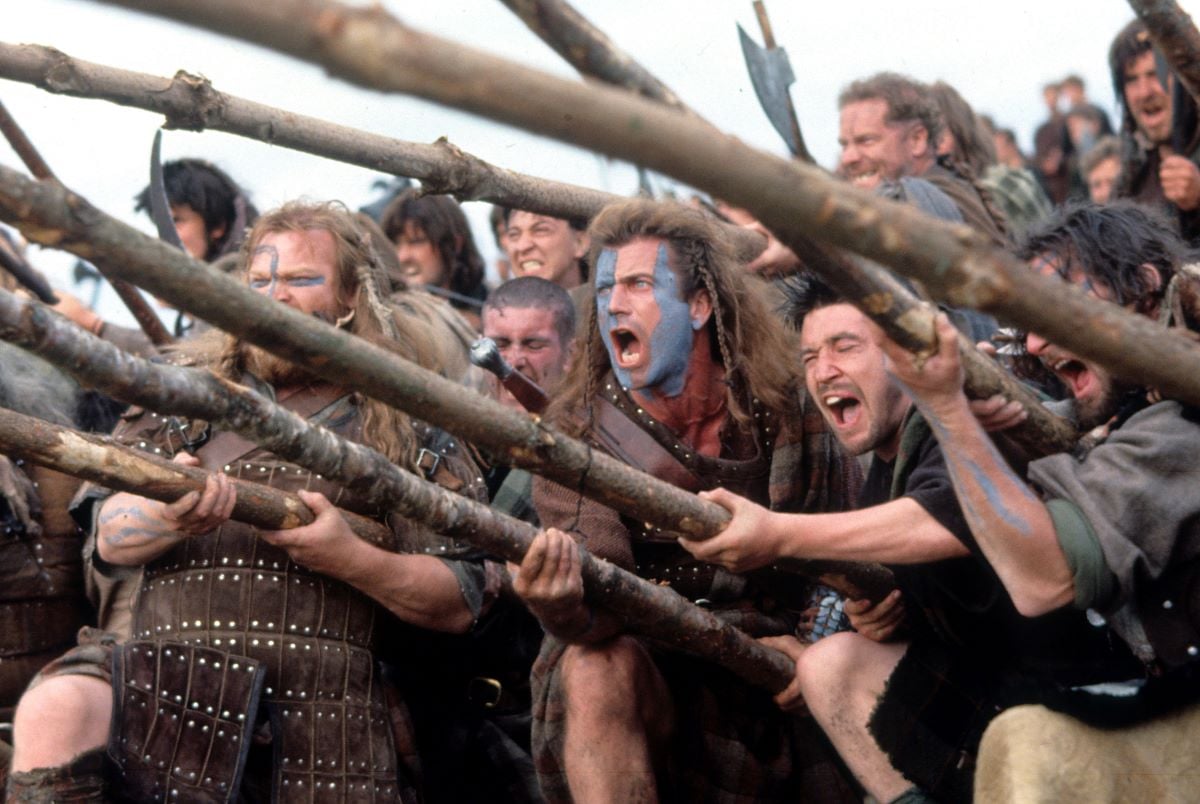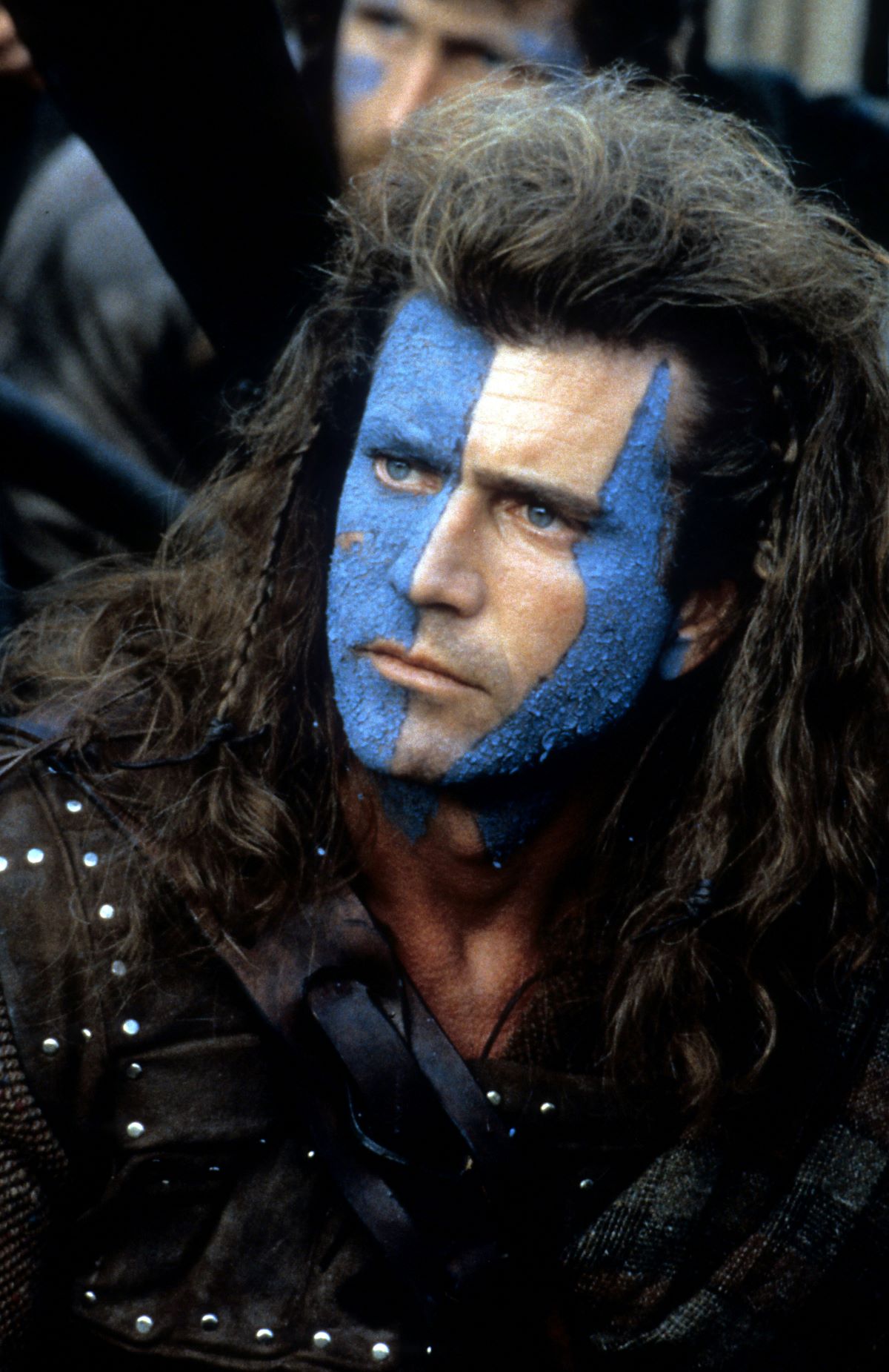Mel Gibson Thought He Was Too Old to Play William Wallace in ‘Braveheart’ Until Paramount Gave an Ultimatum
“… but they’ll never take our freedom!”
It’s been more than 25 years since Mel Gibson delivered his impassioned speech while depicting William Wallace in Braveheart, yet fans can still hear him shouting it now. The film went on to win five Academy Awards, including Best Picture. And it was thanks in part to Gibson’s dedication to the part.
However, the actor, producer, and director of the epic tale didn’t originally want to play the lead. Allegedly he only did so because of an ultimatum from Paramount.
‘Braveheart’ is based on a true story

The story of Braveheart comes from Scottish history, though historians warn that not all the details were factually accurate. The movie follows William Wallace (Gibson) as he leads an uprising against the terrible ruler King Edward “Longshanks,” who seized power of Scotland in the late 1200s.
Wallace was a fearless fighter dedicated to ridding his beloved country of the tyranny Longshanks imparted. Later he was arrested, tried for treason, and sentenced to beheading. When Wallace is granted one final chance to ask for “mercy,” instead he shouts “freedom” before being brutally executed.
Mel Gibson envisioned someone younger for the role

Since Wallace was based on a real person, Gibson tried to stick to a true representation as much as possible. According to IMDb, he attempted to cast a younger actor in the role, but Paramount Pictures studio execs insisted they would only finance the film if Gibson himself took the part.
That’s how William Wallace, a man in his 20s, wound up being played by Gibson when he almost was two decades older than that. The decision paid off and Braveheart remains one of the defining roles of the actor’s career. According to Moviefone, it’s also the most famous film ever made about Scotland.
Gibson defended his decision to alter the true history
In real life, William Wallace wasn’t nicknamed “Braveheart” — that nickname belonged to Robert the Bruce. There are also small changed details that don’t match up with historical accounts, from costuming to specific occurrences throughout the film. But Gibson sticks by his creative decisions nonetheless.
“Some people said that in telling the story we messed up history. It doesn’t bother me because what I’m giving you is a cinematic experience, and I think films are there first to entertain, then teach, then inspire,” the film’s director told Daily Mail.
“There probably were historical inaccuracies – quite a few. But maybe there weren’t, who’s to say, because there was very little history about the man. It wasn’t necessarily authentic.”
William Wallace will be remembered forever
He said his treatment of Wallace was especially favorable in the script. “In some of the stuff I read about [Wallace], he wasn’t as nice as he was on film. We romanticized it a bit, but that’s the language of film – you have to make it cinematically acceptable.”
Fans and critics agree that it’s an enduring tour de force that thrived by having Gibson as the lead, even if he was a bit too old for the part.


